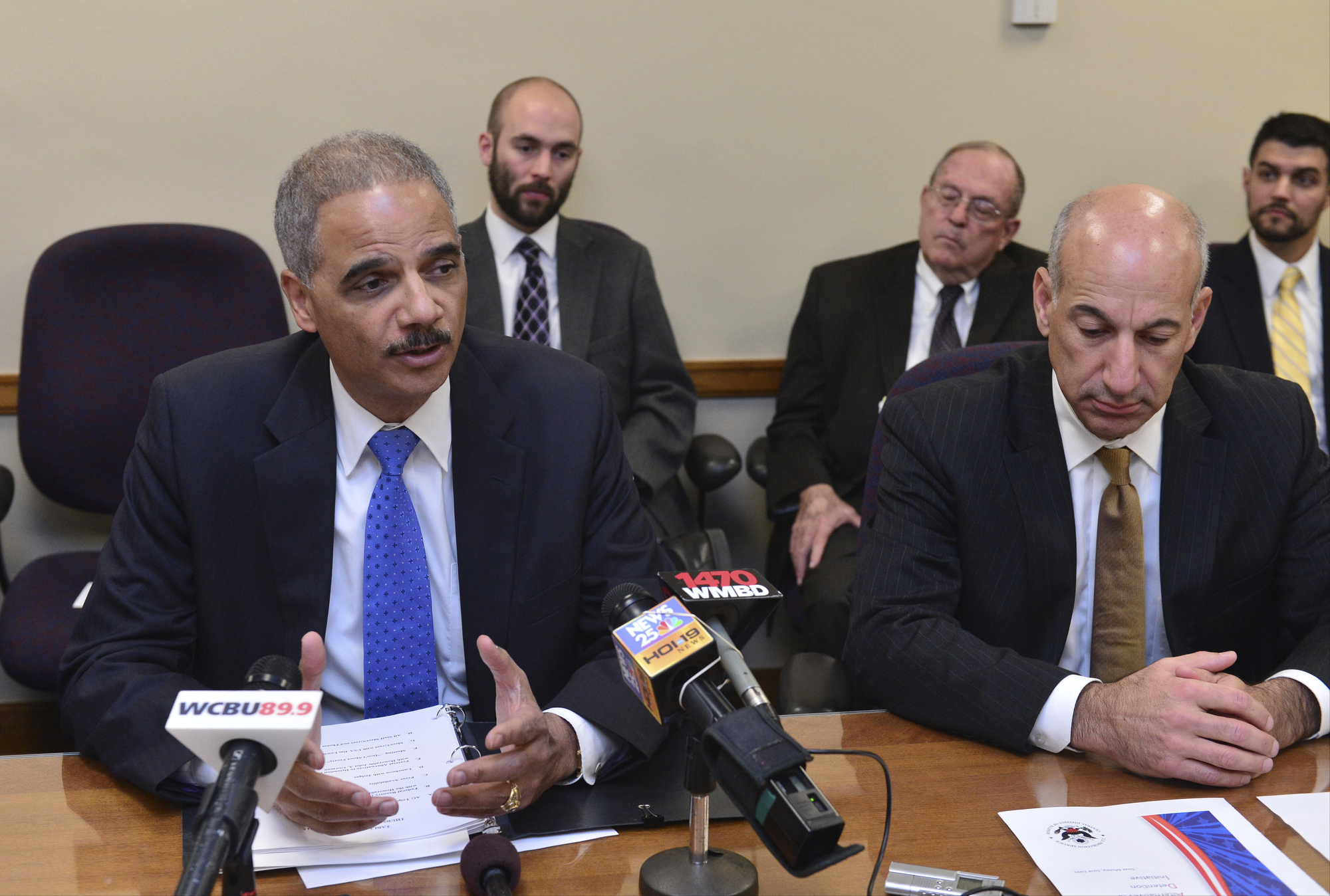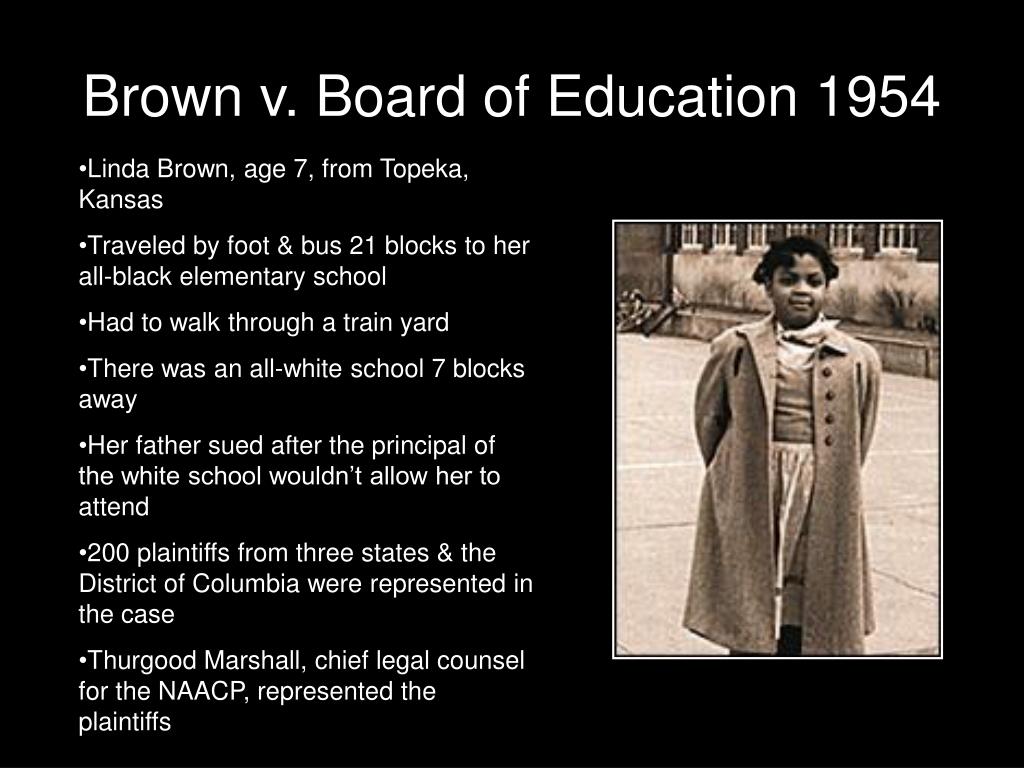Justice Department Concludes Louisiana School Desegregation Case

Table of Contents
History of the Louisiana School Desegregation Case
Louisiana, like much of the American South, had a deeply entrenched system of racial segregation in its public schools. Following the landmark Brown v. Board of Education Supreme Court decision in 1954, which declared state laws establishing separate public schools for black and white students unconstitutional, the desegregation process in Louisiana was slow and often met with significant resistance. This resistance manifested in various forms, including "massive resistance" strategies employed by state and local governments.
Key legal precedents and landmark Supreme Court cases, including Green v. County School Board (1968) which addressed the issue of "freedom of choice" plans, significantly shaped the legal landscape and influenced subsequent challenges to Louisiana's school desegregation efforts. Specific school districts, like those in East Baton Rouge and New Orleans, were focal points of protracted legal battles.
- Key players: The NAACP Legal Defense and Educational Fund, local civil rights organizations, individual plaintiffs, and the United States Department of Justice.
- Significant events: Court orders mandating busing, implementation (and often failure) of desegregation plans, and ongoing monitoring by federal courts.
- Obstacles: Resistance from state and local officials, white flight from integrated schools, and the persistent effects of historical inequities.
The Justice Department's Role in the Case
The Justice Department (DOJ) played a crucial role in this protracted legal battle. Their involvement ranged from filing lawsuits on behalf of plaintiffs to actively monitoring compliance with court-ordered desegregation plans. The DOJ employed various legal strategies, including presenting evidence of discriminatory practices, advocating for equitable resource allocation, and pushing for meaningful integration.
The DOJ's actions led to several significant court rulings and settlements that mandated changes in school policies and practices. These legal interventions aimed to dismantle discriminatory systems and ensure that students of color had equal access to quality education.
- Legal arguments: The DOJ argued that Louisiana failed to meet its constitutional obligation to provide equal educational opportunities, citing evidence of continued segregation in schools.
- Evidence presented: Demographic data illustrating racial disparities in school funding, student achievement, and teacher assignment.
- DOJ's objectives: To achieve meaningful desegregation, ensure equal access to educational resources, and eliminate discriminatory practices in Louisiana schools.
The Conclusion of the Case and its Implications
The recent conclusion of the case marks a significant milestone, though the specific details of the final ruling or settlement remain under review. Regardless of the specific terms, the implications are far-reaching. The settlement, likely involving commitments to ongoing monitoring and specific remedial actions, aims to ensure continued progress toward educational equity.
This conclusion impacts students by potentially improving access to resources and educational opportunities, fostering a more inclusive learning environment, and ultimately, improving educational outcomes. For schools, it signifies a need for ongoing self-evaluation and commitment to anti-racist practices. For the broader Louisiana community, this signals a shift toward a more just and equitable society.
- Implemented changes: Potentially increased funding for under-resourced schools, improved teacher training on culturally responsive teaching, and enhanced monitoring mechanisms to ensure compliance.
- Future challenges: Addressing lingering achievement gaps, combating the effects of historical segregation, and ensuring equitable resource allocation across all school districts.
- Lessons learned: The importance of persistent advocacy, the need for robust legal oversight to ensure compliance with court orders, and the long-term commitment required to achieve true educational equity.
Looking Ahead: Ensuring Equitable Education in Louisiana
The conclusion of this case does not signal an end to the fight for educational justice in Louisiana. Ongoing efforts are crucial to address persistent racial disparities in school funding, teacher quality, and student achievement. Continued monitoring and enforcement by the DOJ and other organizations remain vital to ensure that desegregation remains a priority.
Potential future legal actions or policy changes may be necessary to address emerging challenges and ensure continued progress toward equitable education.
- Initiatives: Programs focused on improving teacher diversity, initiatives promoting culturally relevant curriculum, and investment in early childhood education to mitigate the effects of historical inequities.
- Resources: Organizations dedicated to supporting students and families affected by segregation and working towards educational justice in Louisiana.
- Call to action: Advocate for policies that promote educational equity, support organizations working to achieve desegregation, and stay informed about the ongoing fight for educational justice in Louisiana.
Conclusion: The Lasting Impact of the Justice Department's Conclusion of the Louisiana School Desegregation Case
The Justice Department's conclusion of the Louisiana school desegregation case marks a significant step, but it is only one step in a much longer journey towards achieving educational equity. The case highlights the lasting impact of historical segregation and the crucial role of the DOJ in advocating for the rights of all students. The fight for equal educational opportunities requires persistent effort from individuals, organizations, and government agencies.
This case underscores the need for continued vigilance and the ongoing fight to dismantle systemic barriers to equal education. Stay informed about the ongoing efforts to address racial disparities in education, and research organizations working towards school desegregation in Louisiana and beyond. The pursuit of educational justice requires collective action and unwavering commitment – ensuring that the legacy of this case leads to a truly equitable educational system for all Louisiana students.

Featured Posts
-
 Justice Department Dismisses Longstanding School Desegregation Order Implications For Education
May 03, 2025
Justice Department Dismisses Longstanding School Desegregation Order Implications For Education
May 03, 2025 -
 Nigel Farages Reform Party Local Election Results And Future Prospects
May 03, 2025
Nigel Farages Reform Party Local Election Results And Future Prospects
May 03, 2025 -
 Fan Falls From Outfield Wall During Cubs Game Hospitalized
May 03, 2025
Fan Falls From Outfield Wall During Cubs Game Hospitalized
May 03, 2025 -
 45 Vuelta Ciclista A La Region De Murcia Victoria Para Fabio Christen
May 03, 2025
45 Vuelta Ciclista A La Region De Murcia Victoria Para Fabio Christen
May 03, 2025 -
 Au Dela De La Douleur Emmanuel Macron Emu Face Aux Victimes De L Armee Israelienne
May 03, 2025
Au Dela De La Douleur Emmanuel Macron Emu Face Aux Victimes De L Armee Israelienne
May 03, 2025
